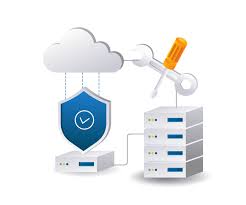Server Maintenance Services

Regular Hardware Checks
- Visual Inspection: Look for signs of wear, dust buildup, or cable management issues.
- Cooling Systems: Check fans and vents for dust accumulation; clean as needed to prevent overheating.
- Component Health: Monitor the status of hard drives, power supplies, and memory through diagnostics tools.

Software Maintenance
- Operating System Updates: Regularly apply security patches and updates to the server OS.
- Application Updates: Ensure all server applications are up to date to mitigate vulnerabilities.
- Backup Software: Verify that backup systems are functioning properly and that backups are completed regularly.

Performance Monitoring
- Resource Utilization: Use monitoring tools (like Nagios, Zabbix, or PRTG) to track CPU, memory, disk, and network usage.
- Alerts: Set up alerts for critical thresholds (e.g., high CPU usage, low disk space).
- Log Management: Regularly review system logs for errors or warnings.

Data Management
- Regular Backups: Implement a consistent backup schedule (daily, weekly) and test restore procedures.
- Data Integrity Checks: Regularly verify the integrity of backups and stored data.
- Disk Cleanup: Remove unnecessary files and applications to free up space.

Security Practices
- Access Control: Regularly review user accounts and permissions; remove inactive accounts.
- Firewall and Antivirus: Ensure these are updated and configured correctly.
- Security Audits: Conduct periodic security assessments and vulnerability scans.